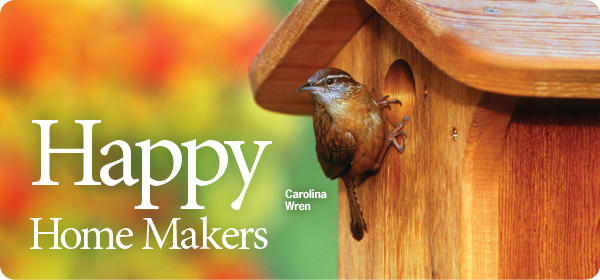Getting Ready For Nesting
The early morning’s chorus is growing louder now as the birds repeatedly sing their beautiful songs to attract a mate and defend their territory. It is a sure sign that many of our resident birds are very busy with nesting preparations.
A new generation of birds will soon be entering the world and the food we provide can make a significant difference on how well they will thrive and survive in our own backyards.
By providing bird food, you can help breeding females spend less time searching for food and more time selecting better nesting sites and constructing higher quality nests. Both adults will also have more time available for protecting their nest, eggs and young from predators.
Research studies have also shown that birds with access to bird feeders will often lay their eggs earlier than those without feeders. This is significant because earlier broods typically have better rates of survival and fledging success than later ones.
Not only is the availability of ample food important, the nutritional content of that food is crucial.
Birds routinely time their nesting activity to coincide with the availability of high-protein foods. The need for protein substantially increases for birds during periods of egg-laying. Obtaining a sufficient amount of protein determines the number of eggs a bird is able to produce and significantly impacts the growth rate and health of young birds. High protein is also crucial for feather development and molting.
Without sufficient calcium levels birds don’t reproduce well. If adult birds does not obtain enough calcium they may not lay as many eggs as normal. In egg-laying females, calcium is used for shell formation. In chicks it is used for bone formation.
Wild Birds Unlimited’s new Nesting SuperBlend™ is a great bird food to help you provide the essential protein & calcium needed by nesting families. This high protein seed blend is packed full of sunflower chips, peanuts, mealworms, bark butter bits, nutrasaff, tree nuts, and calcium. This blend is perfect for birds getting ready to nest, while they nest, and for the young when they leave the nest.
Products to Help Nesting Birds
Nesting SuperBlend
Nesting Material Balls
Bird Houses
Stopping Starlings and Grackles How to keep starlings and grackles away from your bird food.
learn more

